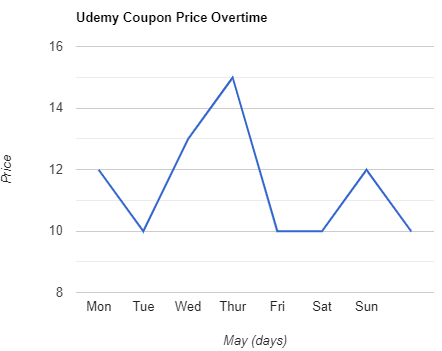Introduction to Computer Science and Programming Using Python
This two-part certification course is designed to help students with very little or no computing background learn the basics of building simple interactive applications. Part 1 of this class will culminate in building a version of the classic arcade game "Pong".
Created by: John Guttag
Produced in 2013
 What you will learn
What you will learn
- Introduction to computer science and the core elements of programs.
- Basic algorithms and functions.
- Recursion and objects.
- Debugging.
- Efficiency, orders of growth and memory and search.
- Classes and inheritance.
- Trees.
 Quality Score
Quality Score
Overall Score : 94 / 100
 Live Chat with CourseDuck's Co-Founder for Help
Live Chat with CourseDuck's Co-Founder for Help
 Course Description
Course Description
 Pros
Pros
 Cons
Cons
-
- Designed to be a first-ever experience with computer science. This is the ultimate beginner-friendly course.
- Designed by MIT.
- Large pool of exercises and supplemental resources to expand the concepts taught in the course.
- Community resources encourage students to help each other.
-
- Course is best followed by purchasing the supplemental textbook, raising the overall cost.
- Focuses more on data science than most introductory Python courses.
- This 8-week course might really take 8 weeks to complete.
 Instructor Details
Instructor Details

- 4.7 Rating
 16 Reviews
16 Reviews
John Guttag
Professor Guttag is the Dugald C. Jackson Professor of Computer Science and Electrical Engineering at MIT. He leads the Computer Science and Artificial Intelligence Laboratory's Data Driven Medical Research Group. The group works on the application of advanced computational techniques to medicine. Current projects include prediction of adverse medical events, prediction of patient-specific response to therapies, non-invasive monitoring and diagnostic tools, and tele-medicine. He has also done research, published, and lectured in the areas of data networking, sports analytics, software defined radios, software engineering, and mechanical theorem proving.Professor Guttag received his bachelors degree in English and his master's in applied mathematics from Brown University. His doctorate is from the University of Toronto.From January of 1999 through August of 2004, Professor Guttag served as Head of MIT's Electrical Engineering and Computer Science Department. He is a Fellow of the ACM and a member of the American Academy of Arts and Sciences.
 Students also recommend
Students also recommend

-
Python Tutorial for Beginners by Corey Schafer (2017)
-
4.8 (28 Reviews)
-
 Provider: YouTube
Provider: YouTube Time: 9h
Time: 9h
Free






